Products
Development Tools
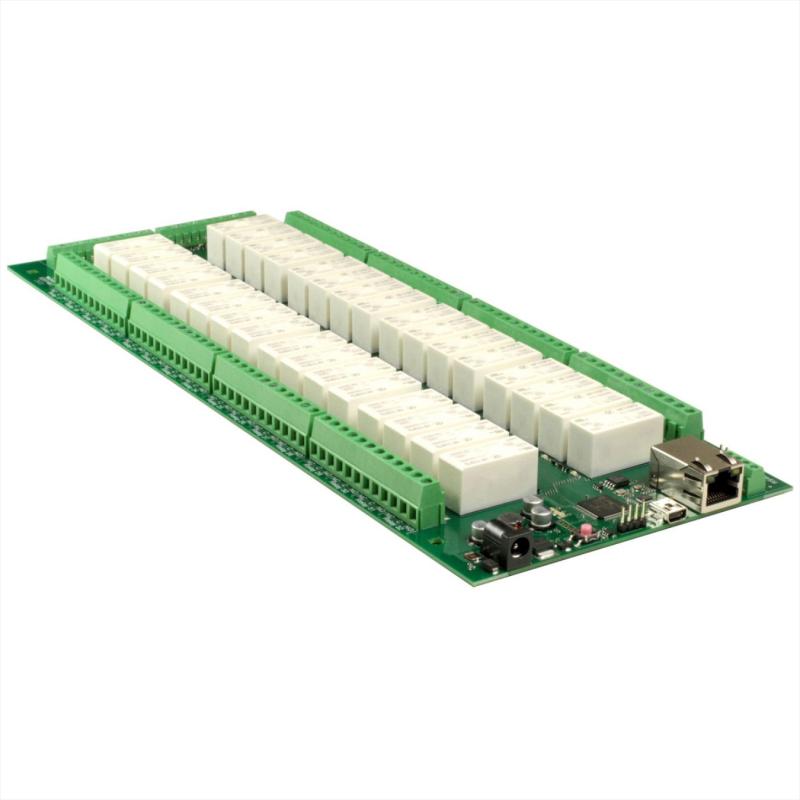
The dS2832 is an Ethernet connected relay module featuring 32 channels of 16Amp 250Vac relays. Each relay has both normally open (NO) and normally closed (NC) as well as the common available on three terminals. 8 flexible I/O channels with a choice of VFC, NPN, or 12-bit analog input. This option is for dS2832 without integrated snubbers. For applications switching inductive loads, please select the -SN variant with integrated snubbers or use an external snubber.
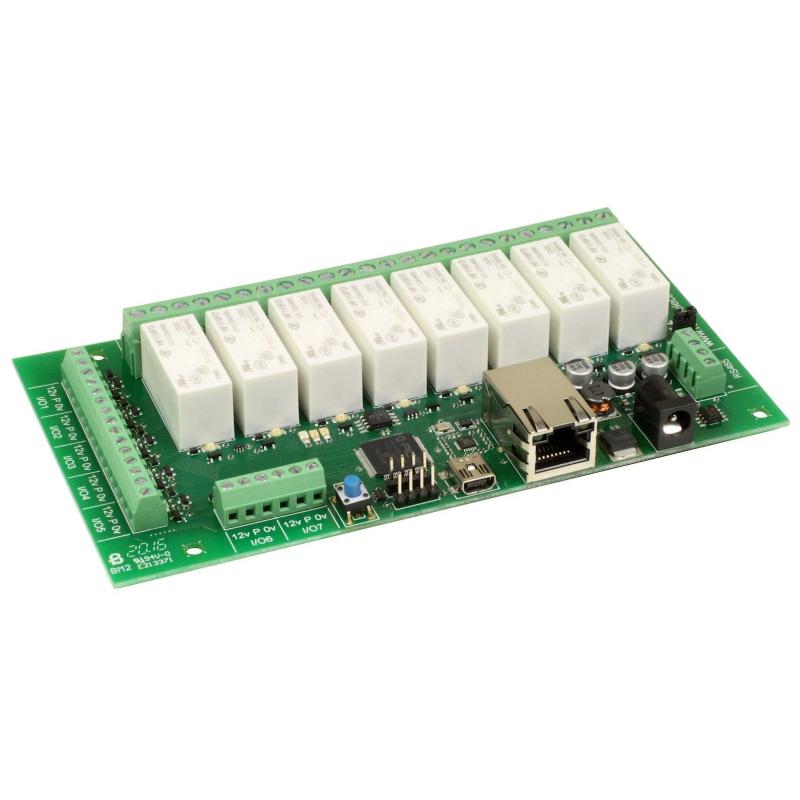
The dS378 is an Ethernet connected relay module featuring 8 channels of 16Amp 250Vac relays. Each relay has both normally open (NO) and normally closed (NC) as well as the common available on three terminals. Create Peer to Peer control in just a few clicks with a powerful dScript programming language.
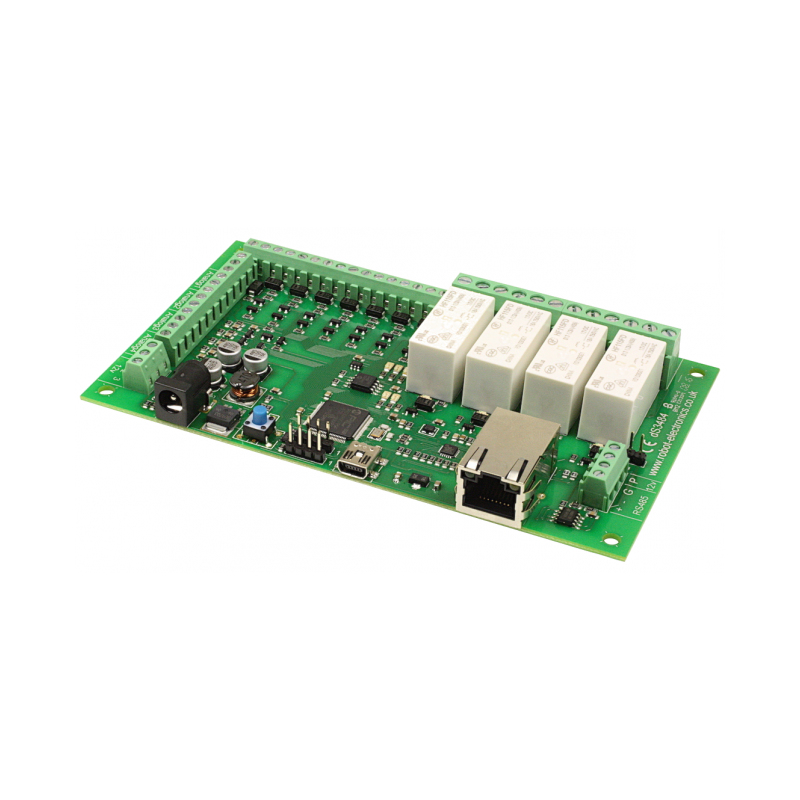
The dS3484 Ethernet controlled relay board provides 8 digital switching I/O channels and 4 voltage-free contact relay outputs with a current rating of up to 16A each. Controlled over TCP/IP via Ethernet or USB for development.
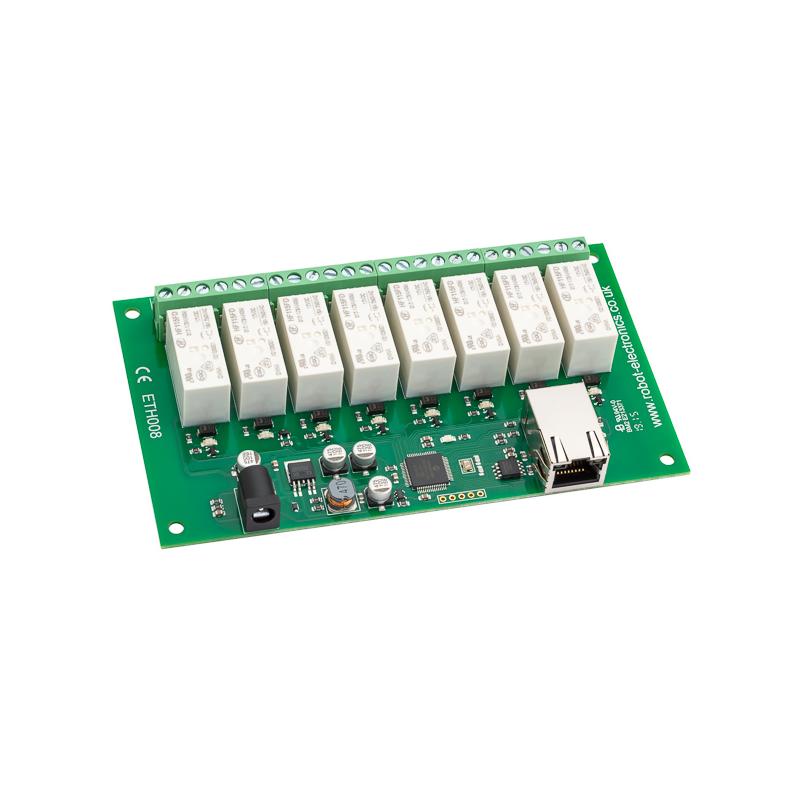
The ETH008-B Ethernet relay board provides 8 voltage-free contact relay outputs with a current rating of up to 16A each. This module is controlled over TCP/IP via Ethernet and is powered via 12VDC supply, either regulated or unregulated.

The USBRLY16-B provides eight volt free contact relay outputs with a current rating of up to 16Amp each. The processor is powered and instructed from any standard USB bus and the relay power is obtained by the DC power input adaptor.
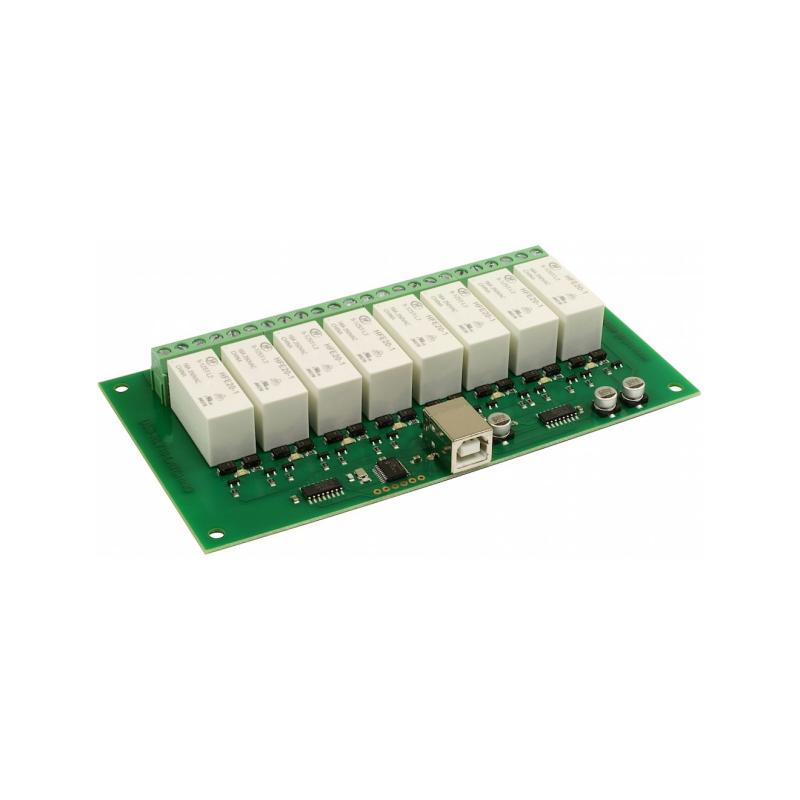
This Devantech USB relay board provides 8 voltage-free contact latching relay outputs with a current rating of up to 16A each. Controlled and powered from any standard USB bus, no separate power supply is needed. Latching relays stay in their last position when power is removed.
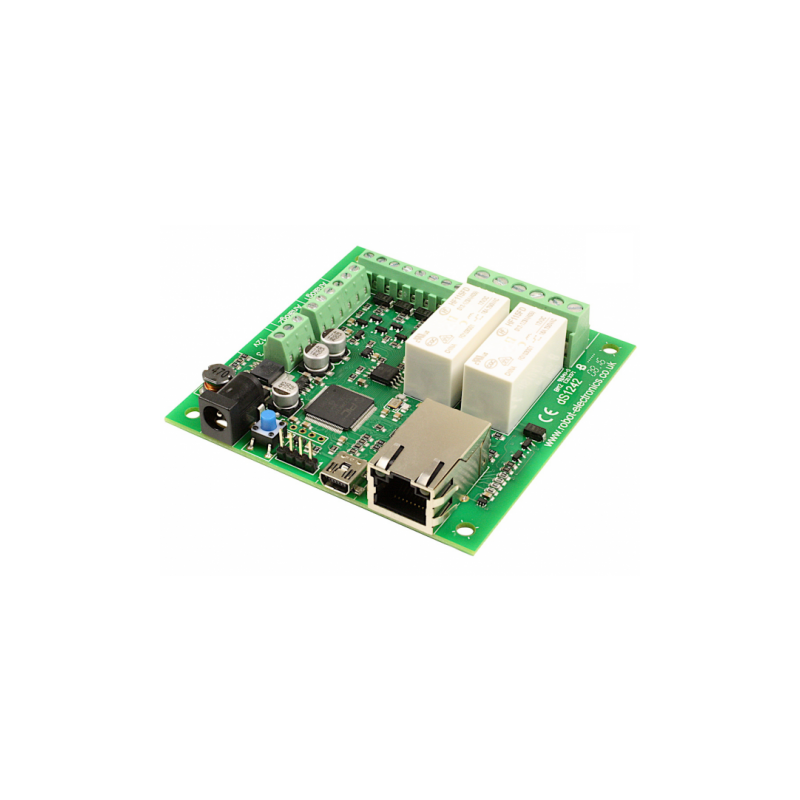
The dS1242 is an Ethernet connected relay module featuring 2 channels of 16Amp 250Vac relays. Each relay has both normally open (NO) and normally closed (NC) as well as the common available on three terminals.
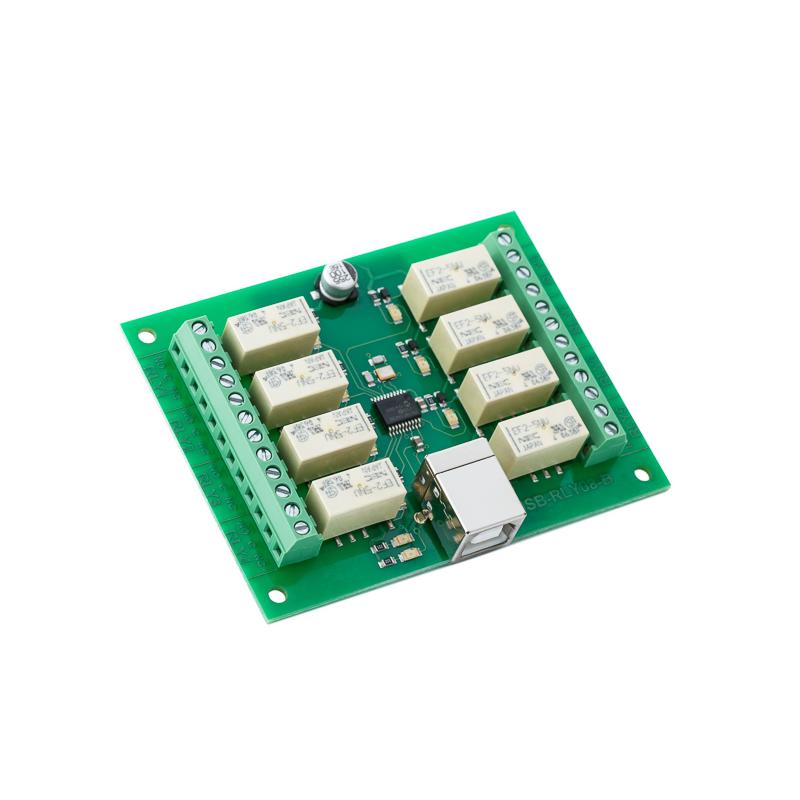
This Devantech 8-channel USB relay module is both powered and controlled by a standard USB bus hub. It uses relays with premium ultra-low power 50mW coil types, which means that the board’s consumption of current is less than 100mA, even with all the relays on, for excellent energy efficiency.
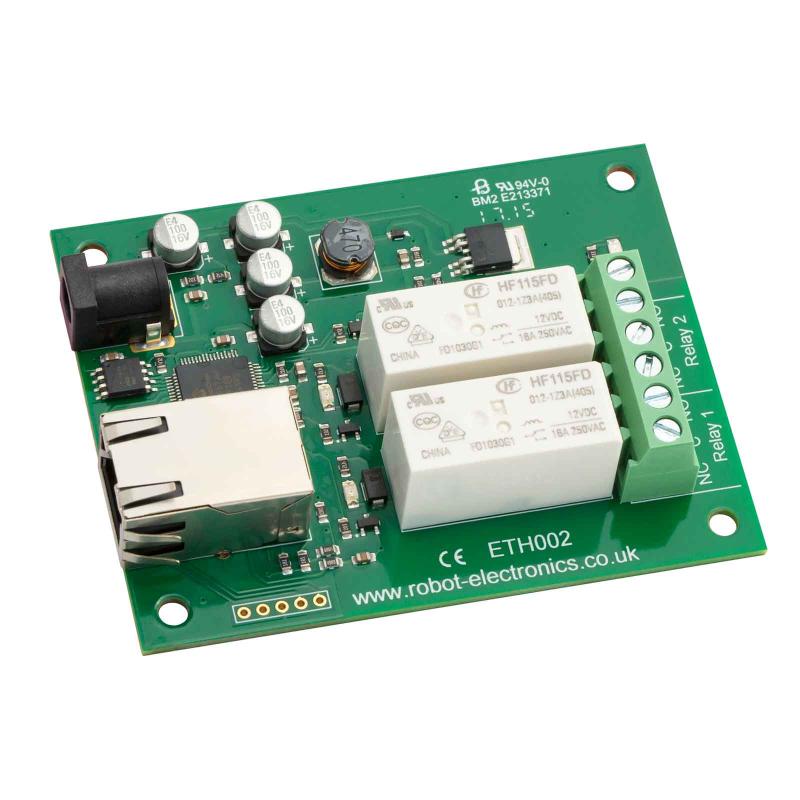
The ETH002-B Ethernet relay board has 2 voltage-free contact SPCO relay outputs with a current rating of up to 16A each, all controlled over TCP/IP via Ethernet. It’s powered via a 12VDC supply, which can be either regulated or unrelated, and the 2.1mm DC input jack has a positive core polarity.
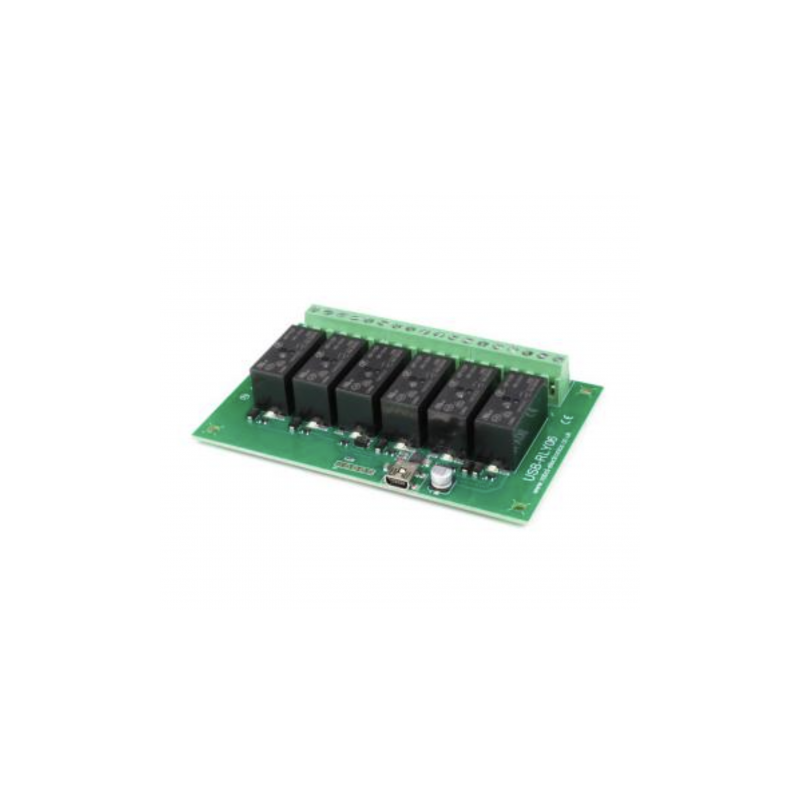
This Devantech USB relay board provides 6 voltage-free contact relay outputs with a current rating of up to 16A each. Powered and controlled from any standard USB bus.
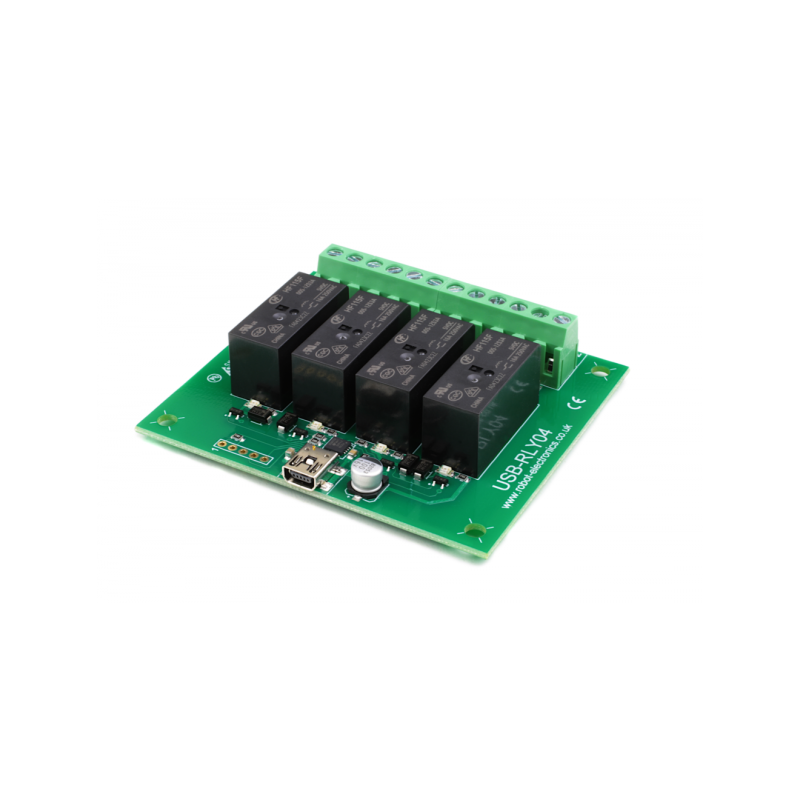
Powered and Controlled from the USB bus.
Relays - 4 with integrated snubbing of the normally open terminals
Power - Powered from standard USB bus
Control interface - USB with a mini B connector
Relay current - Up to 16Amp @24vdc or 250vac
Connections - Screw Terminals for N/O N/C and Common contacts.
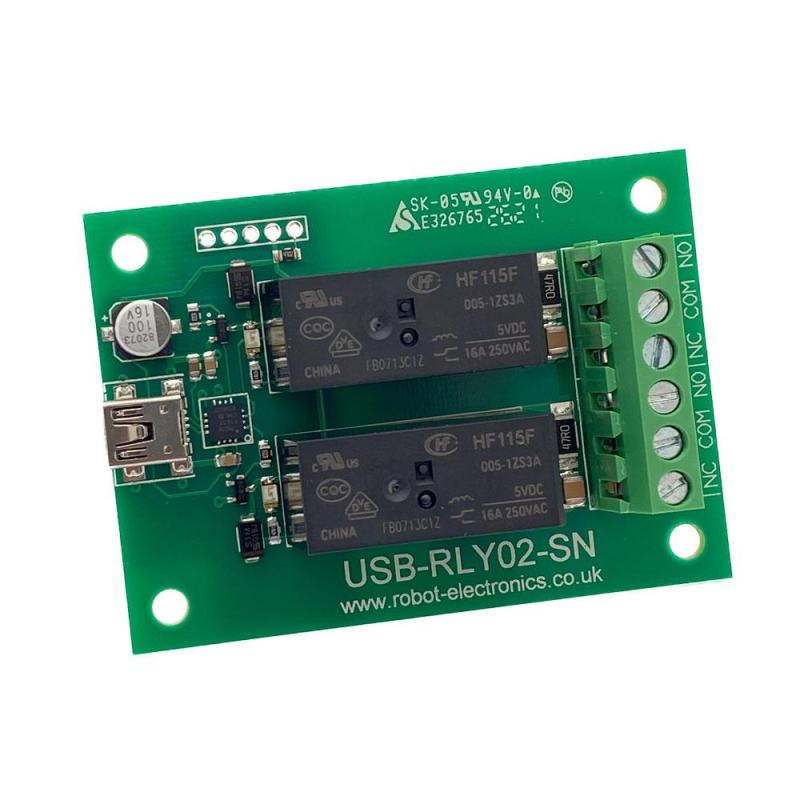
This Devantech USB relay board provides 2 voltage-free contact relay outputs with a current rating of up to 16A each. Powered and controlled from any standard USB bus, does not require any additional power. This option includes integrated snubbers installed for inductive load applications.
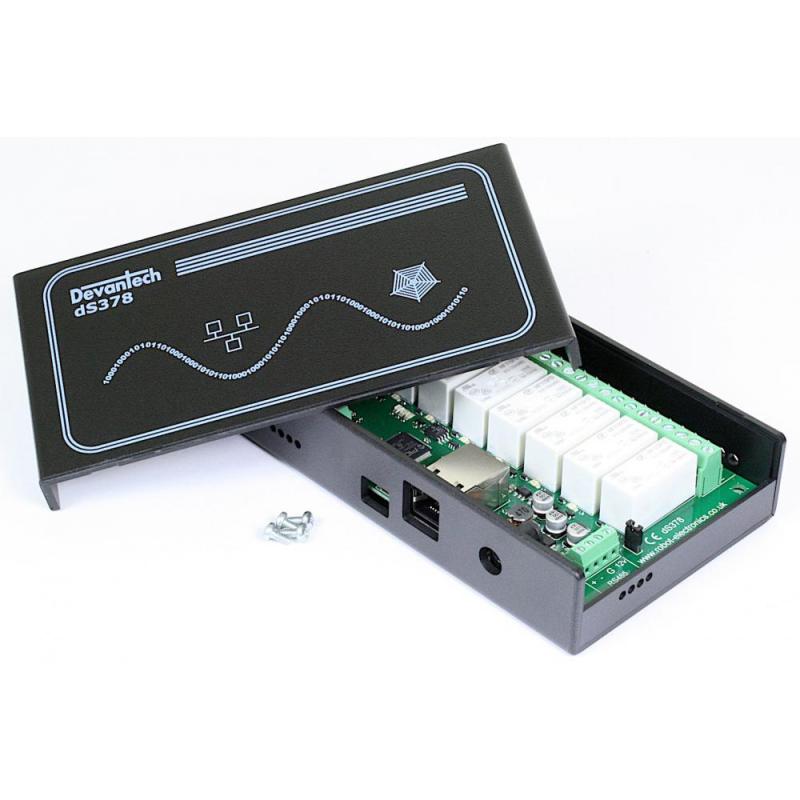
Case for Devantech dS378 Ethernet relay board. Includes mounting holes for fixing to a wall or back panel. This precision snap together case includes screws for mounting the dS378 module.
Supplied as a case only, the dS378 module should be ordered separately.
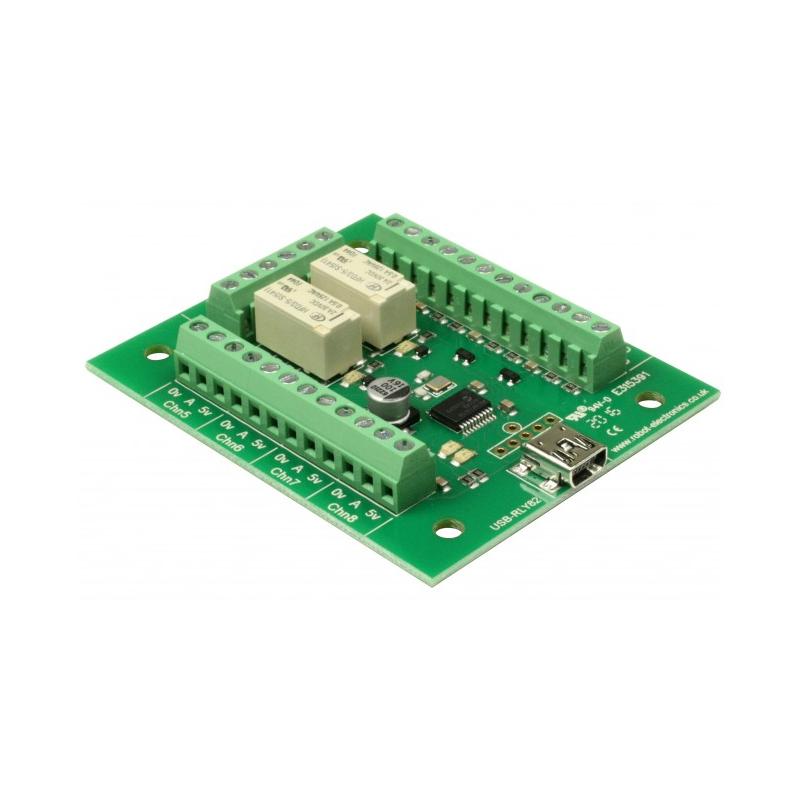
The USB-RLY82 USB controlled relay board provides 2 voltage-free contact relay outputs with a current rating of up to 16A each. Powered and controlled from the USB bus, this board features premium ultra low power 50mW coils.
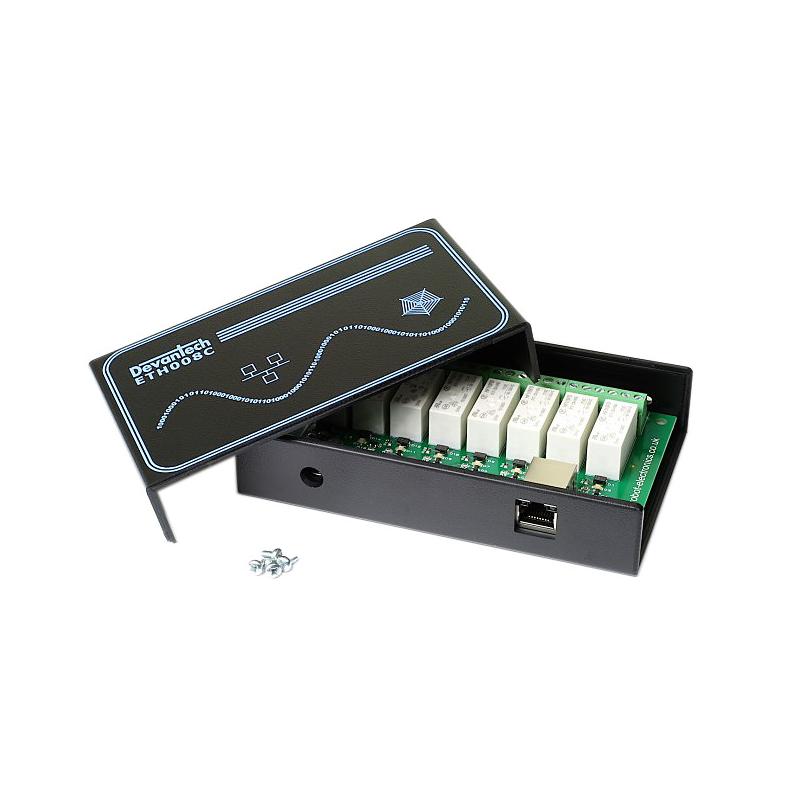
A precision case for Devantech ETH008. Includes mounting holes for fixing to wall or back panel and includes all screws to mount the Devantech ETH008 relay board inside.
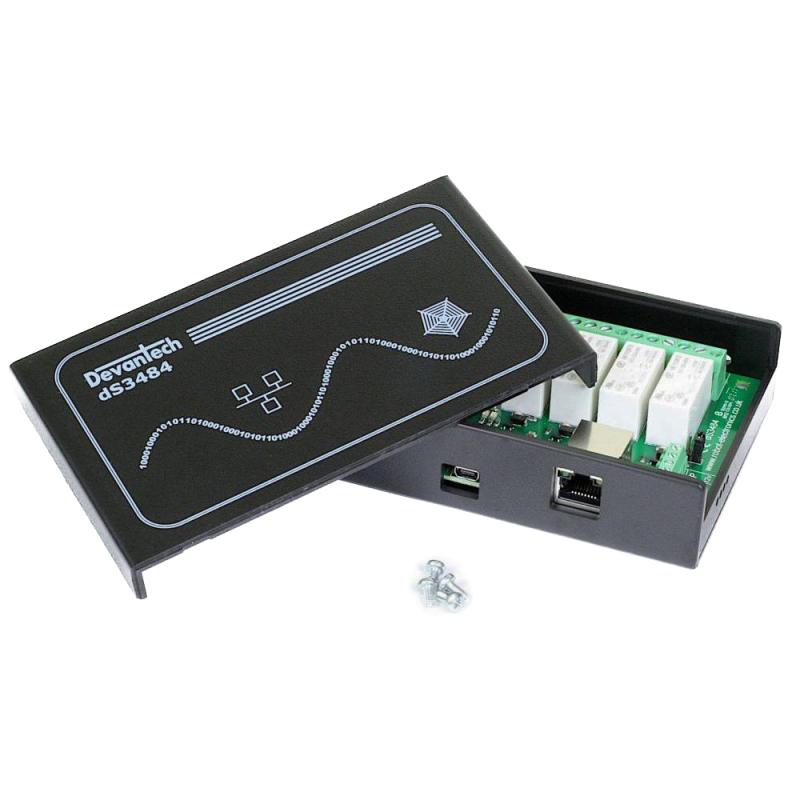
Devantech dS3484 case. Includes mounting holes for fixing to a wall or back panel. This precision snap together case includes screws for mounting the dS3484 module.
Supplied as a case only, the dS3484 module should be ordered separately.

A precision case for Devantech ETH002 relay board. Includes screws for mounting the Devantech ETH002 relay module inside.